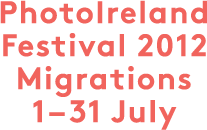Susan Forbes Martin (author, editor)
John Tirman (author, editor)
2009, XVIII, 253 p.
Springer
An estimated 35 million people worldwide are displaced by conflict, and most of them are women and children. During their time away from their homes and communities, these women and their children are subjected to a horrifying array of misfortune, including privations of every kind, sexual assaults, disease, imprisonment, unwanted pregnancies, severe psychological trauma, and, upon return or resettlement, social disapproval and isolation.
Written by the world’s leading scholars and practitioners, this unique collection brings these problems – and potential solutions – into sharp focus. Based on extensive field research and a broad knowledge of other studies of the challenges facing women who are forced from their homes and homelands by conflict, this book offers in-depth understanding and problem-solving ideas. Derived from a project to advise U.N. agencies, it speaks to a broad array of students, scholars, NGOs, policymakers, government officials, and international organizations.
Susan Forbes Martin, Editor, is Donald G. Herzberg Associate Professor of International Migration and Executive Director of the Institute for the Study of International Migration in the School of Foreign Service, Georgetown University, and longtime consultant to many agencies on migration issues.
John Tirman, Editor, is Executive Director of the Center for International Studies at MIT, where he is also Principal Research Scientist. He is on the steering group of the Inter-University Committee on International Migration.









